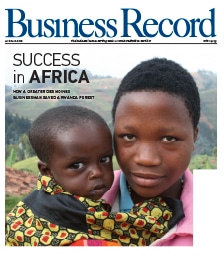Ted Townsend’s dream comes true in Rwanda

|
The Rwandan Parliament has approved the designation of the Gishwati and Mukura areas as a national park — a longtime goal of Des Moines businessman Ted Townsend, Rwanda’s New Times reported.
Townsend, founder of what became the Great Ape Trust, a Des Moines research center now known as the Ape Cognition & Conservation Initiative and under new management, told Rwandan President Paul Kagame about his vision to save the forest during a meeting at the Clinton Global Initiative in 2007.
Eventually, Townsend, former owner of meat-processing equipment manufacturer Townsend Engineering Co., opened a field station in Rwanda and built a staff. He later withdrew his financial support to turn the project over to the government and a local nongovernment organization. Drake University, Iowa State University, Simpson College and William Penn University have all been involved in this and other Rwanda projects in recent years.
The national park designation is expected to protect the area from development and to make it easier to get money for conservation projects there.
“It’s been a long road, but the designation of Gishwati as an official Rwanda national park is most gratifying,” Townsend said via email. “Many people worked very hard toward this end, with no guarantee of success. I thank and admire them all. This accomplishment is a small, yet significant contribution to a much larger global goal.”
The new national park is part of the country’s broader plan to expand the total forest cover to 30 percent of the country’s total surface area, the New Times reported.
More than 150 families will have to move to make way for the park, but the government has promised assistance. The national park could create jobs for tourism guides and hotel staff, the New Times reported.
The forests were designated as forest conservation zones in 1933, the newspaper reported. But much of the area was cleared over the decades, particularly when refugees returned after the 1994 genocide.
Many Rwandans cleared land for cattle ranching or to raise crops. Some used the wood to make charcoal for sale, or took vines with which to make crafts. The forests were a fraction of their former size, and Gishwati was in danger of disappearing.
The changes threatened an isolated group of chimpanzees, worsened soil erosion that left Rwanda’s streams lifeless and coffee-colored, and even changed local weather patterns. Read more
|
|














